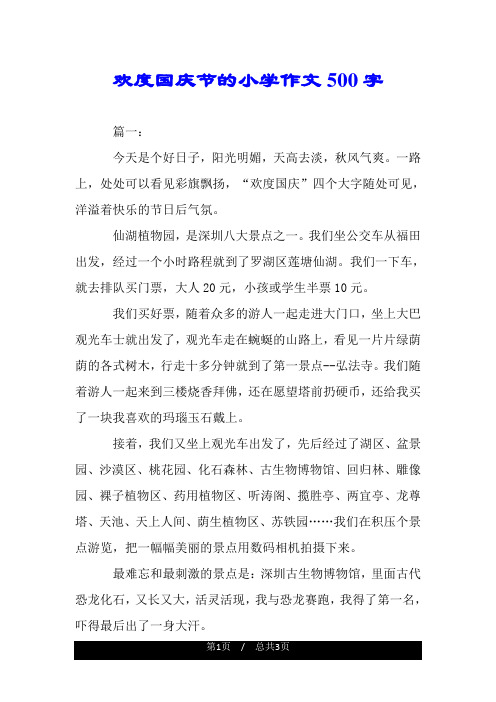Title: The Double-Edged Sword of the Internet: Its Pros and Cons

In an era where technology reigns supreme, the internet has revolutionized the way we live, work, and interact with each other. It is an indispensable tool that has given birth to numerous advantages, but it also harbors some drawbacks. In this essay, we will delve into the pros and cons of the internet from different angles and provide a comprehensive view of its impact on society.
Firstly, let us acknowledge the internet's undeniable benefits. The ease of accessing information through the internet has made learning and research more efficient than ever. Students can now access vast amounts of knowledge at their fingertips, making education accessible to people around the world. Furthermore, online communication tools like email and social media have facilitated instant messaging and virtual meetings, allowing for global collaboration without geographical constraints. The internet also offers a platform for entrepreneurship and job hunting, providing avenues for individuals to start businesses and make a living online.
However, the internet's influence goes beyond personal and professional realms. It also affects our social lives, as we spend more time online than ever before. Social media has transformed the way we interact with friends and families, bringing them closer together despite physical distances. Additionally, the internet provides opportunities for cultural exchange and understanding, allowing people worldwide to share their experiences and cultures. However, the overreliance on digital platforms can lead to addiction, which negatively impacts mental wellbeing.
The rise of cybercrime is another concern related to the internet's benefits. Cyberbullying, identity theft, and online scams are becoming increasingly common, causing distress and financial loss to many individuals. The anonymity offered by the internet makes it easier for criminals to commit crimes without fear of punishment. Furthermore, the spread of misinformation on social media has become alarming, leading to confusion and even violence against certain groups.
The internet's role in shaping our political landscape cannot be overlooked either. Online forums allow for public discourse, giving citizens a voice and promoting transparency in governance. The internet also facilitates advocacy for issues such as climate change and social justice, enabling people to rally behind causes they care about. However, the internet can also polarize public opinion, exacerbating existing social tensions and creating echo chambers where people only consume content that aligns with their beliefs.
The healthcare industry has been greatly influenced by the internet too. Patients can now access medical advice online, reducing the need for traditional consultations. Medical professionals can also use online resources to improve their skills and stay updated with the latest developments in their fields. However, the accuracy of online medical information needs to be verified, as misinformation can be dangerous. Additionally, the reliance on technology for health advice can lead to a decrease in face-to-face interactions, which is essential for building trust and rapport with patients.
Lastly, the internet's impact on the environment is significant. The exponential growth of online services and data centers consumes a considerable amount of power, contributing to climate change. Moreover, the disposal of electronic devices creates waste, posing environmental challenges. To counteract these negative effects, there is a growing call for sustainable online practices, encouraging companies to adopt eco-friendly measures and promoting digital minimalism to reduce unnecessary consumption.
In conclusion, the internet has revolutionized every aspect of our lives in terms of both benefits and drawbacks. It offers immense convenience, accessibility to knowledge, and opportunities for global collaboration and entrepreneurship. However, it is essential to recognize and mitigate the potential risks associated with the internet, including cybercrime, online misinformation, and environmental concerns. By balancing these factors, we can harness the internet's potential while ensuring that it remains a force for good in our society.

Title: The Digital Dilemma: Balancing Pros and Cons
The internet has become a ubiquitous part of contemporary life, offering unprecedented convenience and connectivity. However, as with any powerful tool, its use comes with its own set of complexities and dilemmas. This essay aims to explore the dual nature of the internet—its transformative powers that enrich our lives and simultaneously pose new challenges to those who do not keep pace with the rapid advancements.
One of the paramount benefits of the internet is its capacity to democratize information and knowledge. Access to vast databases of scholarly articles, educational videos, and multimedia resources has opened doors to education and research that were once exclusive to a select few. This accessibility has empowered individuals to pursue their passions, expand their horizons, and challenge prevailing norms in their respective fields. Moreover, the internet has made it possible for remote communities to connect with one another and engage in meaningful dialogues, fostering understanding and cooperation among diverse groups.
On the flip side, the internet has created new forms of addiction and distraction, affecting mental health, productivity, and overall wellbeing. Social media platforms have become ubiquitous and often serve as a source of stress and anxiety. The endless scroll through feeds or notifications can lead to feelings of loneliness, disconnection, and even burnout. Furthermore, the prevalence of online gaming and streaming services has led to sedentary lifestyles and a decline in physical activity.
Another significant challenge posed by the internet is the issue of privacy and security. The vast amount of sensitive personal and professional information collected and stored on digital platforms raises concerns about data breaches and cyberattacks. Hackers have exploited vulnerabilities in various software applications to steal personal details, financial data, or even control systems. This lack of trust in technology can lead individuals to be less willing to share personal information online, thereby impeding the flow of information and hindering progress towards innovation and efficiency.
Moreover, the internet has contributed significantly to environmental degradation. The energy requirements of hosting large-scale servers and maintaining websites have led to substantial emissions of carbon dioxide and other pollutants into the atmosphere. Moreover, e-papers or digital printing technologies used for books are detrimental to forestry ecosystems and contribute to global warming.
In addressing these challenges, several solutions have been proposed. Encouraging mindfulness and self-regulation in users can help mitigate addiction and promote digital wellbeing. Adopting ethical guidelines for online content creation can prevent the spread of misinformation and fake news. Furthermore, investing in renewable energy sources for data centers and promoting digital minimalism can help minimize environmental impact.
In conclusion, the internet's influence on our lives is profound and multifaceted, embracing both benefits and drawbacks. While the internet undoubtedly offers numerous advantages, from increased educational opportunities to global connectivity, it is essential that we remain mindful of its implications on mental health, security, and environmental sustainability. By striking a balance between its benefits and its limitations, we can ensure that the internet remains a force for positive change in our society.
更多精彩》
学美式英语的电影(Learn English in American movies)旋转滑梯英语怎么读(Rotating slide English pronunciation)
小学生创新作文(小学生创意写作)世界以痛吻我高考作文(痛吻我以高考挑战)
秋天的小学作文三年级(秋日小学生活记)上海高考作文题目2021(2021上海高考作文题) 电视剧纵有疾风起剧情介绍(电视剧《纵有疾风起》剧情)小学生三年级周记(三年级学生每周记事) 实习生自我鉴定50字(实习生自评)部队驾驶员申请书范文1000字(部队驾驶员申请书范文)






